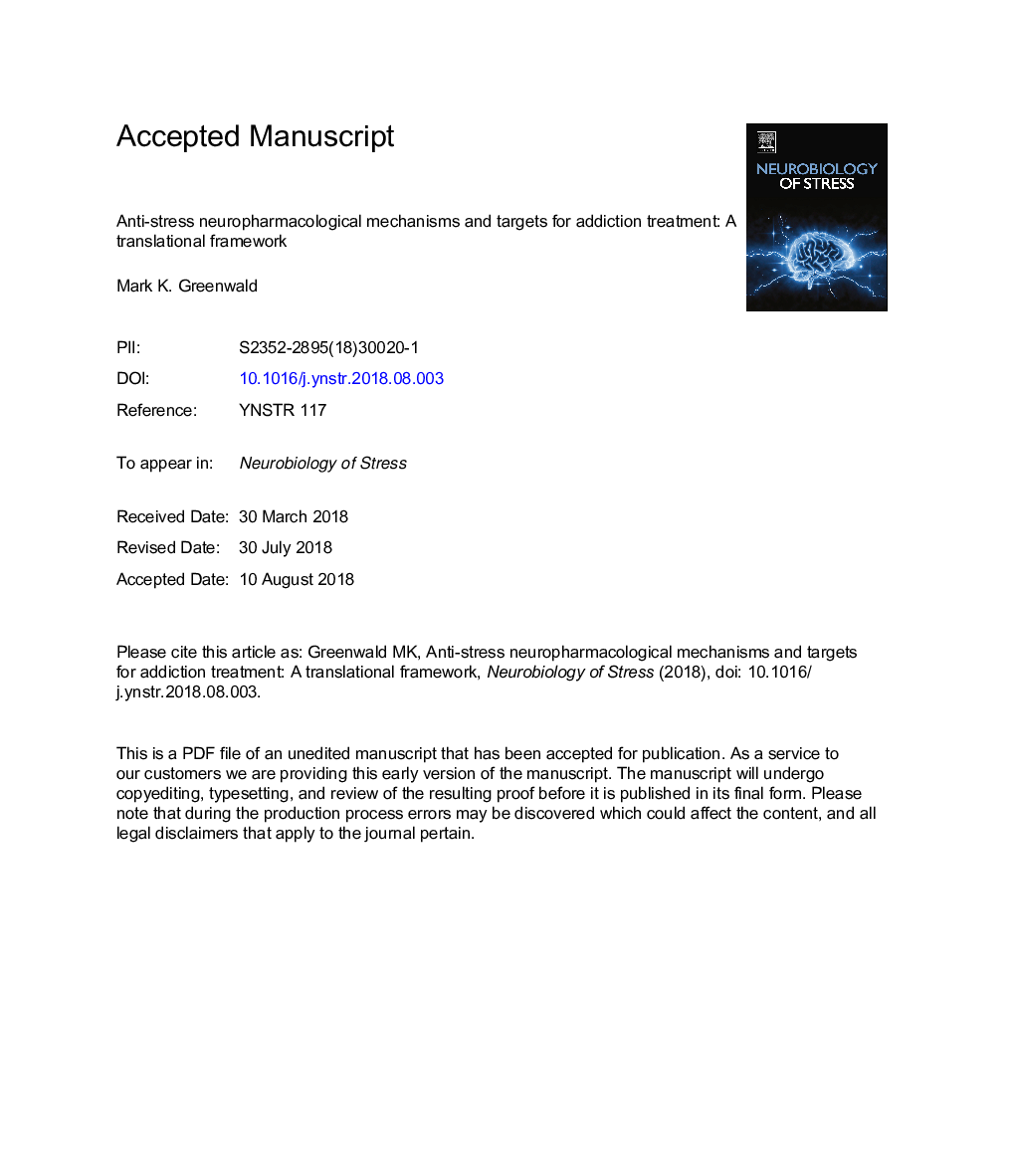| Article ID | Journal | Published Year | Pages | File Type |
|---|---|---|---|---|
| 10106889 | Neurobiology of Stress | 2018 | 71 Pages |
Abstract
Stress-related substance use is a major challenge for treating substance use disorders. This selective review focuses on emerging pharmacotherapies with potential for reducing stress-potentiated seeking and consumption of nicotine, alcohol, marijuana, cocaine, and opioids (i.e., key phenotypes for the most commonly abused substances). I evaluate neuropharmacological mechanisms in experimental models of drug-maintenance and relapse, which translate more readily to individuals presenting for treatment (who have initiated and progressed). An affective/motivational systems model (three dimensions: valence, arousal, control) is mapped onto a systems biology of addiction approach for addressing this problem. Based on quality of evidence to date, promising first-tier neurochemical receptor targets include: noradrenergic (α1 and β antagonist, α2 agonist), kappa-opioid antagonist, nociceptin antagonist, orexin-1 antagonist, and endocannabinoid modulation (e.g., cannabidiol, FAAH inhibition); second-tier candidates may include corticotropin releasing factor-1 antagonists, serotonergic agents (e.g., 5-HT reuptake inhibitors, 5-HT3 antagonists), glutamatergic agents (e.g., mGluR2/3 agonist/positive allosteric modulator, mGluR5 antagonist/negative allosteric modulator), GABA-promoters (e.g., pregabalin, tiagabine), vasopressin 1b antagonist, NK-1 antagonist, and PPAR-γ agonist (e.g., pioglitazone). To address affective/motivational mechanisms of stress-related substance use, it may be advisable to combine agents with actions at complementary targets for greater efficacy but systematic studies are lacking except for interactions with the noradrenergic system. I note clinically-relevant factors that could mediate/moderate the efficacy of anti-stress therapeutics and identify research gaps that should be pursued. Finally, progress in developing anti-stress medications will depend on use of reliable CNS biomarkers to validate exposure-response relationships.
Related Topics
Life Sciences
Neuroscience
Behavioral Neuroscience
Authors
Mark K. Greenwald,
